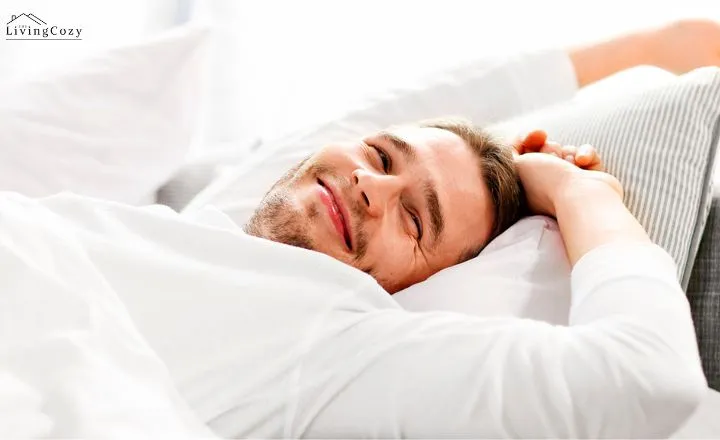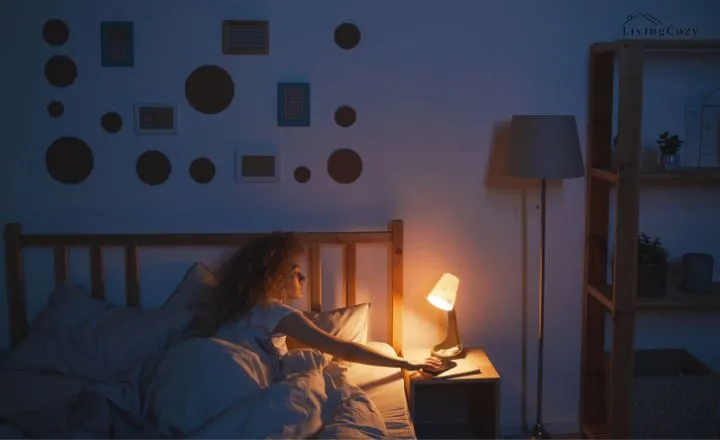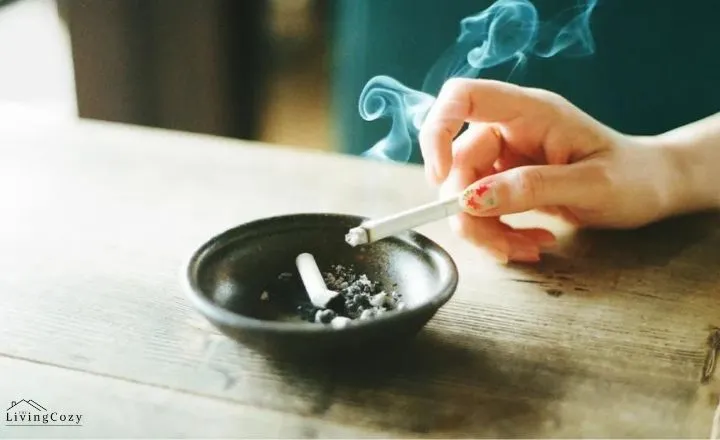The struggle to fall asleep quickly and then wake up feeling restored is an age-old conundrum faced by many individuals seeking that elusive balance between work, life, and rest.
This article is here to guide you on How To Fall Asleep Faster And Wake Up Refreshed. Whether you’re a chronic insomniac or just looking for ways to improve your sleep quality, we’ve got you covered with proven tips and tricks that will have you drifting off into dreamland in no time.
Set a sleep schedule and stick to it:
Setting a consistent sleep schedule is crucial for maintaining good sleep hygiene and overall health. By going to bed and waking up at the same time every day, you can regulate your body’s internal clock, known as the circadian rhythm.
This can lead to better quality sleep and improved daytime alertness. stick to a sleep schedule, it’s important to create a relaxing bedtime routine that signals to your body that it’s time to wind down.
This could include activities such as reading, taking a warm bath, or practicing relaxation techniques Minimizing exposure to screens and bright lights before bed can help signal to your brain that it’s time to prepare for sleep.
Establish a relaxing bedtime routine:

Establishing a relaxing bedtime routine is essential for a good night’s sleep. Start by setting a consistent bedtime and wake-up time to regulate your body’s internal clock.
Prioritize winding down an hour before bed by engaging in calming activities such as reading, meditating, or taking a warm bath. Avoid screens and stimulating activities that can disrupt your sleep.
Creating a soothing environment in your bedroom can also contribute to relaxation. Consider using dim lighting, calming scents, and comfortable bedding to promote a restful atmosphere.
With these elements in your bedtime routine, you can improve the quality of your sleep and wake up feeling refreshed each morning.
Make your bedroom a sanctuary:
Turn your bedroom into a sanctuary, start by decluttering and organizing the space. Remove any unnecessary items and keep only those that bring you joy and relaxation.
Consider adding soft, calming colors to the walls and bedding to create a soothing atmosphere. Invest in comfortable bedding and pillows to ensure a good night’s sleep. Incorporate elements of nature into your bedroom, such as plants or natural materials like wood or stone, to bring a sense of tranquillity.
Adding soft lighting options like lamps or candles to create a cozy ambiance. consider incorporating personal touches such as photos, artwork, or items that hold sentimental value to make the space feel uniquely yours.
Take a hot shower:
Taking a hot shower can be a great way to relax and unwind after a long day. The warm water can help to soothe sore muscles and relieve tension, while the steam can open up your pores and leave your skin feeling refreshed.
The heat of the shower can help to improve circulation and promote relaxation, making it a perfect way to de-stress.
It’s important to be mindful of the temperature of the water, as excessively hot showers can strip the skin of its natural oils and cause dryness.
It’s best to keep the water at a comfortable temperature and limit your time in the shower to avoid any negative effects on your skin.
Relax your body:
Relaxing your body is essential for reducing stress and promoting overall well-being. One effective way to relax your body is through deep breathing exercises.
By taking slow, deep breaths and focusing on the sensation of air entering and leaving your body, you can calm your nervous system and release tension.
Relax your body through progressive muscle relaxation. This involves systematically tensing and then releasing each muscle group in your body, starting from your toes up to your head. This practice can help alleviate physical tension and promote a sense of relaxation throughout your entire body.
Dim the lights in the evening and sleep in a dark room:

Dimming the lights in the evening and sleeping in a dark room can have significant benefits for your sleep quality. Exposure to bright lights, especially blue light from screens, can disrupt your body’s natural sleep-wake cycle by suppressing melatonin production.
By dimming the lights and minimizing exposure to artificial light before bed, you can signal to your body that it’s time to wind down and prepare for sleep.
Sleeping in a dark room is also important because darkness helps stimulate the production of melatonin, the hormone that regulates our sleep-wake cycle. A dark environment can help you fall asleep faster and experience deeper, more restorative sleep throughout the night.
Sleeping in a dark room can reduce the risk of disturbances that might otherwise disrupt your sleep, leading to a more restful and rejuvenating night’s rest.
Use nightlights:
Using nightlights can also save energy by reducing the need for larger, brighter lights during nighttime activities such as reading or getting up for water. This can result in lower electricity bills and contribute to a more sustainable environment.
Turn your clock away from the bed:
Turning your clock away from the bed can be a simple yet effective way to improve your sleep quality. By removing the temptation to constantly check the time, you can reduce anxiety and stress associated with not being able to fall asleep.
This small change can help promote a more restful and uninterrupted sleep, allowing you to wake up feeling more refreshed in the morning.
Avoid using tobacco or caffeinated products at night:

Avoiding tobacco and caffeinated products at night is important for promoting better sleep quality. Both tobacco and caffeine can have stimulating effects on the body, making it difficult to relax and fall asleep.
Nicotine in tobacco can disrupt sleep patterns and lead to restless nights, while caffeine can stay in the system for several hours, interfering with the body’s natural sleep-wake cycle.
Stick to light meals and beverages before bed:
Stick to light meals and beverages before bed to promote better sleep. Heavy or rich foods can cause discomfort and disrupt your ability to fall asleep, so opting for lighter options like a small snack or herbal tea can help you wind down more easily. Avoiding caffeine and alcohol close to bedtime can also support better sleep quality.
Eating a heavy meal or consuming stimulating drinks before bed can lead to indigestion, heartburn, and disrupted sleep patterns. Instead, focus on incorporating foods that are easy to digest and won’t cause discomfort when lying down.
Try a sleep supplement:
Trying a sleep supplement can be a good option for improving sleep quality. There are various natural and over-the-counter sleep supplements available that can help promote relaxation and improve sleep patterns.
Melatonin, valerian root, and magnesium are some popular options that have been shown to aid in better sleep.
It’s important to consult with a healthcare professional before starting any new supplement, as they can interact with other medications or have potential side effects.
Avoid late naps:
Avoiding late naps is important for maintaining a healthy sleep schedule. Late naps, especially in the evening or close to bedtime, can disrupt your body’s natural circadian rhythm and make it harder to fall asleep at night. This can lead to poor quality of sleep and feelings of grogginess the next day.
Instead of taking late naps, try to establish a consistent sleep routine that includes going to bed and waking up at the same time every day.
If you feel the need for a nap, aim to take it earlier in the day and keep it short, around 20-30 minutes, to avoid interfering with your nighttime sleep.
Get out of bed:
Getting out of bed can be challenging, especially if you’re feeling unmotivated or tired. One way to overcome this is by setting a specific goal or task for the day that excites you.
Whether it’s a project you’re passionate about or a fun activity you’re looking forward to, having something to look forward to can make getting out of bed more appealing.
Try an OTC medication:
When considering an over-the-counter (OTC) medication, it’s important to consult with a healthcare professional to ensure that the chosen medication is safe and appropriate for your specific needs.
OTC medications can provide relief for various conditions such as allergies, pain, cold symptoms, and heartburn.
it’s crucial to carefully read and follow the instructions on the packaging to avoid any potential side effects or interactions with other medications.
Put your phone away 30 minutes before your bedtime routine:
Putting your phone away 30 minutes before your bedtime routine can significantly improve the quality of your sleep. The blue light emitted by screens can disrupt your body’s natural sleep-wake cycle, making it harder to fall asleep and reducing the overall quality of your rest.
Putting your phone away before bed can help reduce stress and anxiety. Constant exposure to notifications, emails, and social media can keep your mind active and prevent you from fully relaxing.
Taking a break from your phone allows you to disconnect from the outside world and focus on calming activities that promote better sleep, such as reading, meditating, or practicing deep breathing exercises.
Conclusion How To Fall Asleep Faster And Wake Up Refreshed:
Understanding How To Fall Asleep Faster And Wake Up Refreshed? falling asleep faster and waking up refreshed is a key component of maintaining overall health and well-being.
By incorporating relaxation techniques, creating a conducive sleep environment, and establishing a consistent bedtime routine, individuals can improve their sleep quality.
Adopting healthy lifestyle habits such as regular exercise and balanced nutrition can further enhance the ability to fall asleep faster and wake up feeling rejuvenated.
It is important to prioritize sleep as an essential part of self-care and make the necessary adjustments to achieve better rest.


